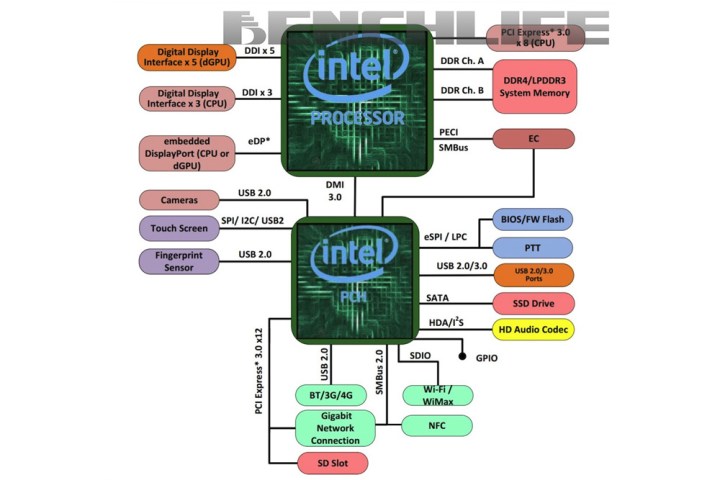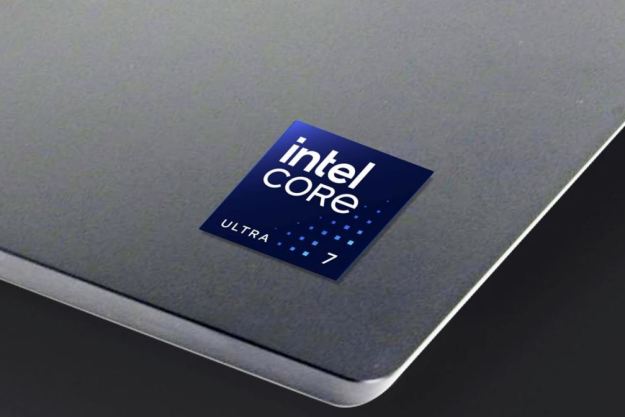
Although unconfirmed by Intel at this time, the hardware giant has in the past said it was looking toward more “heterogeneous” designs which blend various processor technologies on a single chip. With that in mind, Benchlife (via WCCFTecH) claims to have seen Intel slides which suggest a new expansion of the seventh-generation processor lineup aimed at laptops and embedded solutions.
Purportedly two designs are planned so far: a 65w chip and a 100w alternative. Each features four cores and will feature a GT2 graphics chip connected to the main processor through a PCIExpress x8 bridge, with High Bandwidth Memory 2 (HBM2) on the CPU chip used as the graphics processor’s (GPU) VRAM.
Most curiously, the design is said to have no on-board cache, which is a real departure from processor designs of recent years. It is said to utilize a separate platform controller hub (PCH) which incorporates extras like networking, Wi-Fi, SATA drivers, USB control, touchscreen compatibility, and BIOS functions.
One question raised by this rumored design leak is whether AMD has any involvement with it. At the end of 2016, we heard tell that Intel had begun licensing AMD graphics technology. AMD is the only graphics card maker so far that has shown itself capable of integrating graphical hardware with HBM memory, which it did in its Fury line of graphics cards. While HBM2 is a new generation of that, Intel’s surprise adoption of it does hint at possible AMD collaboration.
Regardless, if the rumors are true, this will be one of the largest chips that Intel has produced in some time, measuring in at 58.5 x 31 mm — far bigger than current desktop designs, which are 37.5 x 37.5mm.
Editors' Recommendations
- Intel’s big bet on efficient GPUs might actually work
- 4 CPUs you should buy instead of the AMD Ryzen 7 5800X3D
- Intel may have a monster new CPU coming soon
- Intel claims up to 268% gaming boost with latest Arc graphics drivers
- Intel’s CPUs just got way more confusing



